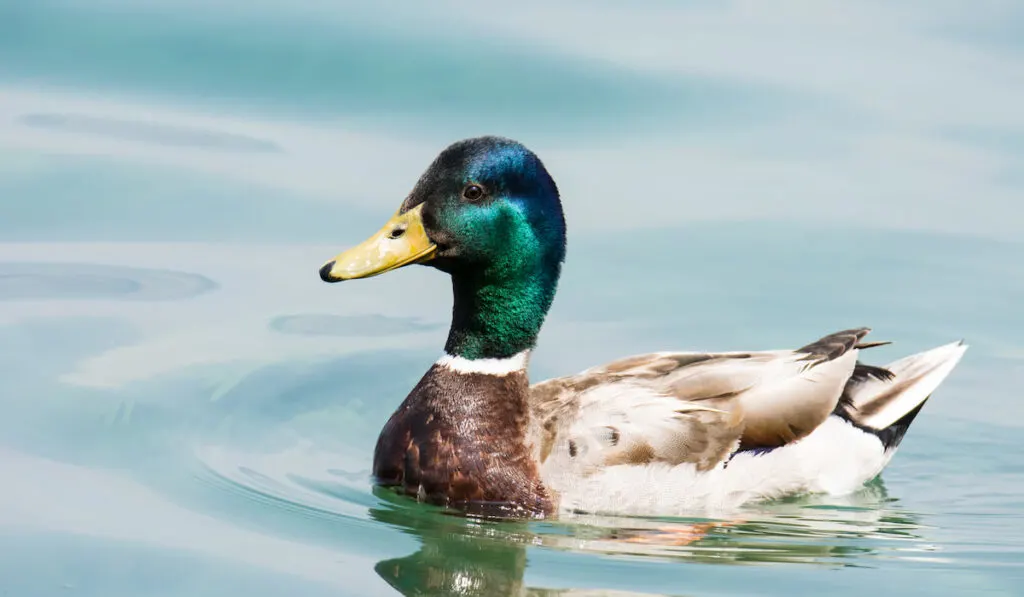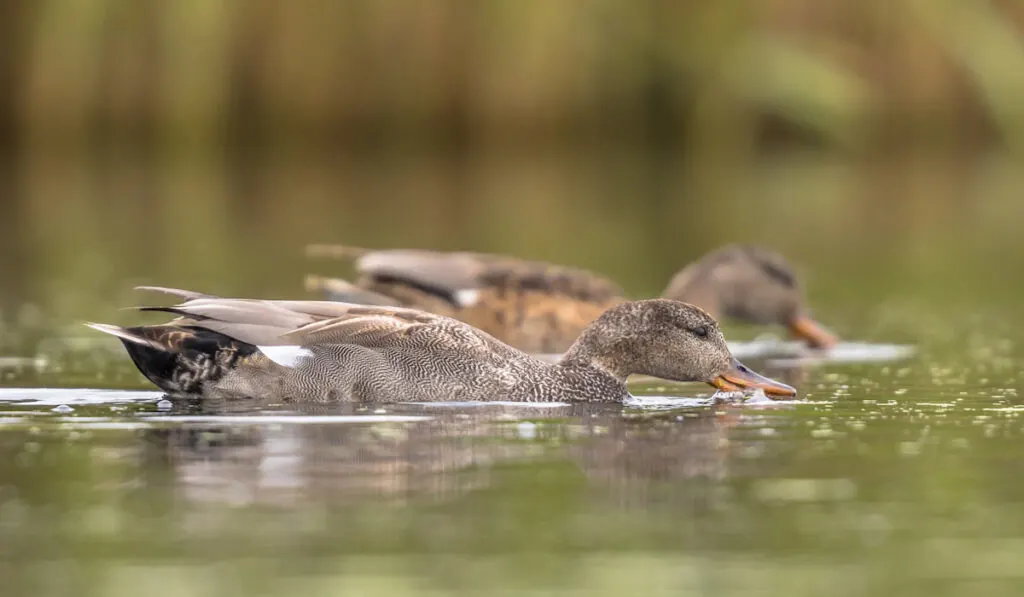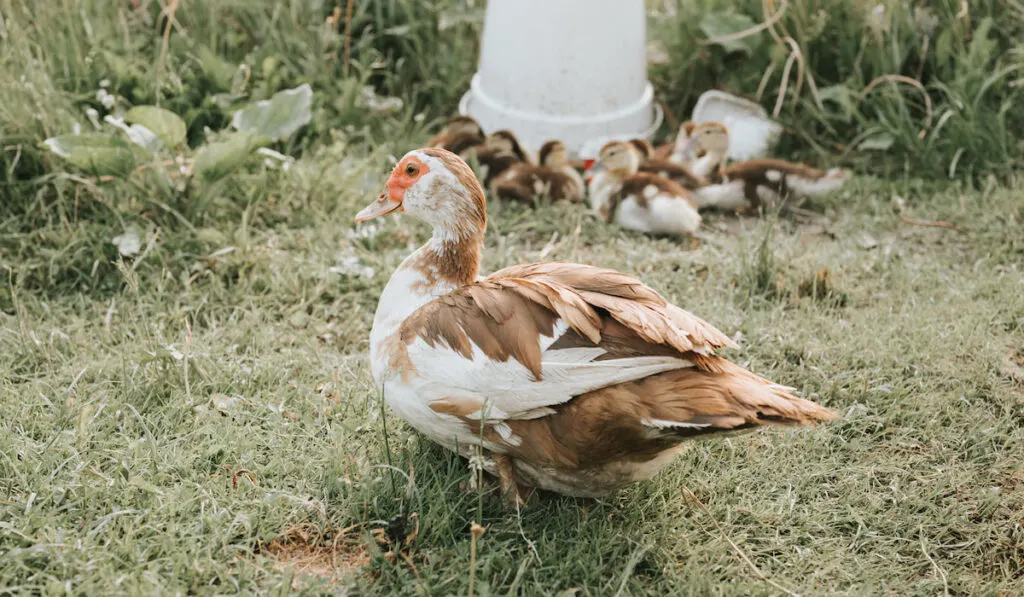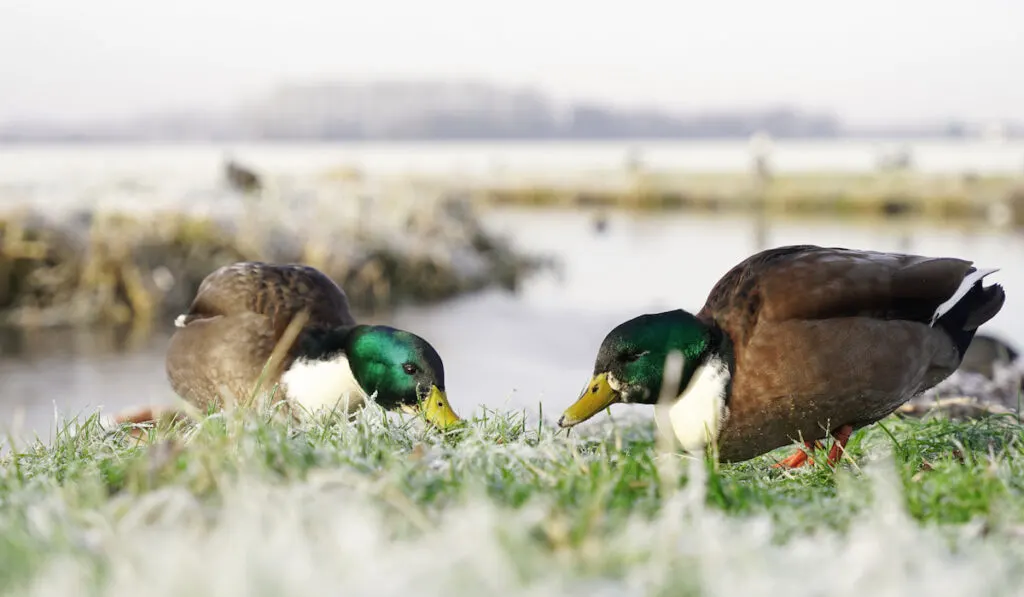You may not think of ducks as the type of animal to dig or create holes. But it is actually common for ducks to use their bills to drill or dig into the ground.
The good news is that these holes are usually not destructive. And if you have ducks in or around your garden, you do not need to be overly worried about them causing major damage. They do not dig deeply or scatter dust and stones around like chickens do.
Why do ducks dig holes?
Ducks naturally dig holes. Digging or drilling is natural for a number of reasons including instinct and foraging.

Understanding why ducks dig can help you provide the best care for your animals while also keeping a protective eye on your garden. Let’s take a look at some key reasons why ducks dig and how they can affect your garden.
Table of Contents
5 Reasons Ducks Dig Holes
Surprise! Ducks love to dig holes, and if you are a proud duck owner, you have likely encountered this. If you let your ducks wander through your garden, you’ll also come across ducks digging around your plants and produce. Digging is natural for ducks, and you don’t have to worry about their behavior. Here are 5 reasons ducks dig holes.
Foraging
A ducks will stick its bill into the soil, drilling under it in search of bugs, grubs, and worms to eat. This usually happens in soft, wet, and muddy soil because it is easier for a duck to push through the moist ground with their bill. The holes can also fill with water, forcing bugs to float or collect where the ducks can eat them
Ducks foraging in mud or moist ground can leave small holes behind in your garden. The holes are usually not visible until after the ground dries a bit since the holes tend to be small. While the holes will not damage your garden, they can make the garden look a bit messy.

Swimming
Ducks love ponds, especially freshwater ponds. Ducks that do not have access to a pond may start digging to create one. This usually happens near a water source so water collects in the hole as they dig. When creating a pond, ducks usually make the sides slant to make entering and leaving the pond easy for them.
The ponds might be great for the ducks, but they can be a hazard for humans. The ponds take a long time to become large enough for swimming. They can become covered by grass or overfilled with water in a way that hides them from easy view. If a pond is hidden, you may step in it and become injured.
Ducks digging to create a pond can also affect your garden. Ducks sometimes try to kill the grass or plantation around the pond they are building. It is safer for you, and your garden, to provide a pond for ducks to swim in a clear and accessible place.
Bathing
Ducks love bathing, so digging holes to create ponds also gives them a place to groom. Pond water tends to be muddy, but the mud and dirt rolls right off their plumage.
Ducks also use the ponds to clean their bills after digging in the ground. Their bills can become quite muddy, and bathing in water helps them clear their bills. Unfortunately, this often leaves the water itself muddy and stagnant.
While the holes made for duck bathing are relatively harmless, the filth and bugs that collect in the water may not be. Ducks also poop in the water causing bacteria and smells to build up. If ducks are digging holes in your garden for bathing, you’ll want to replace the water and dispose of waste.
Hiding Eggs
There’s also a chance that you’ll find your ducks digging holes to keep their eggs in. This is perfectly normal. Ducks use holes to hide their eggs and to protect them from predators.
Ducks may choose to lay their eggs in holes even if they have a nest prepared. After dropping their eggs in the hole, ducks will cover the hole with several inches of bedding. This will not cause any harm to your garden, but you might want to watch where you step.
Drinking
Water is a basic need for ducks. Aside from bathing and swimming, ducks use ponds and self-created holes as sources of drinking water. Ducks will dig holes in the ground to collect water.
While muddy drinking water won’t hurt the ducks, clean water is always better. Providing fresh and easily accessible drinking water for your ducks will be healthier for the ducks and help limit the number of holes they dig for water collection.

Can Ducks Harm Your Garden by Digging Holes?
While the holes dug by a duck are not harmful, the holes can become large or hidden inside a garden. You can trip or fall if you step into a hole accidentally so it is important to keep an eye out or regularly check for new holes. Being alert can help keep your garden a safe place for you.
Ducks can also affect your garden by digging holes that attract insects. Depending on your climate and your garden, the bugs will vary and could harm your garden if not regulated.
But there’s a good side to the digging ducks. Ducks can help control pests in your garden by feeding on worms, grubs, and bugs inside the soil. Where the ducks actually choose to dig is a key factor. Too close to your plants, and they can destroy parts of your garden by digging the soil holding your plants.

How to Stop Ducks From Digging Holes in Your Garden
- Place a fresh water source on a cemented area or firm surface away from your plants. This will prevent the ducks from drilling into the ground with their bills.
- Provide your ducks with an alternative foraging area. Create a space with soft mud and a natural bug population where you don’t need to keep an eye on how close they are to your garden plants.
- Build a fence to keep your ducks from digging in areas where holes could be a hazard.
- Expand their diet. Feed your ducks more vegetables and proteins that they can safely eat. This will satisfy their hunger and more naturally curb their need to forage or dig for bugs.
Resources
- https://calicoblossom.com/how-to-manage-messy-muddy-duck-water/
- https://www.backyardchickens.com/threads/duck-that-digs-holes.623552
- https://www.backyardchickens.com/threads/duck-digging-holes.542160
- https://www.backyardchickens.com/threads/young-ducks-digging-is-this-normal-new-owner.1126459
- https://kb.rspca.org.au/knowledge-base/how-should-i-keep-and-care-for-my-pet-ducks
- http://www.gardeningknowhow.com/garden-how-to/beneficial/attracting-ducks-to-garden.htm#
- http://autumnbreezechickens.blogspot.com/2012/09/are-ducks-digging-these-holes.html
